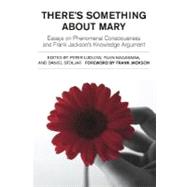
Note: Supplemental materials are not guaranteed with Rental or Used book purchases.
Purchase Benefits
Looking to rent a book? Rent There's Something About Mary Essays on Phenomenal Consciousness and Frank Jackson's Knowledge Argument [ISBN: 9780262621892] for the semester, quarter, and short term or search our site for other textbooks by Ludlow, Peter; Nagasawa, Yujin; Stoljar, Daniel. Renting a textbook can save you up to 90% from the cost of buying.
| Acknowledgments | ix | ||||
| Sources | xi | ||||
| Contributors | xiii | ||||
| Foreword: Looking Back on the Knowledge Argument | xv | ||||
|
|||||
| Introduction | 1 | (36) | |||
|
|||||
| Part I Black-and-White Mary | 37 | (20) | |||
|
39 | (12) | |||
|
|||||
|
51 | (8) | |||
|
|||||
| Part II Does She Learn Anything? | 57 | (18) | |||
|
59 | (10) | |||
|
|||||
|
69 | (8) | |||
|
|||||
| Part III The Ability Hypothesis | 75 | (86) | |||
|
77 | (28) | |||
|
|||||
|
105 | (38) | |||
|
|||||
|
143 | (20) | |||
|
|||||
| Part IV The Acquaintance Hypothesis | 161 | (56) | |||
|
163 | (16) | |||
|
|||||
|
179 | (18) | |||
|
|||||
|
197 | (20) | |||
|
|||||
| Part V Old Facts, New Modes | 217 | (82) | |||
|
219 | (22) | |||
|
|||||
|
241 | (28) | |||
|
|||||
|
269 | (30) | |||
|
|||||
| Part VI Did She Know Everything Physical? | 299 | (108) | |||
|
301 | (8) | |||
|
|||||
|
309 | (24) | |||
|
|||||
|
333 | (32) | |||
|
|||||
|
365 | (42) | |||
|
|||||
| Part VII Postscripts | 407 | (36) | |||
|
409 | (8) | |||
|
|||||
|
417 | (4) | |||
|
|||||
|
421 | (22) | |||
|
|||||
| Supplemental Bibliography | 443 | (14) | |||
| Index | 457 |
The New copy of this book will include any supplemental materials advertised. Please check the title of the book to determine if it should include any access cards, study guides, lab manuals, CDs, etc.
The Used, Rental and eBook copies of this book are not guaranteed to include any supplemental materials. Typically, only the book itself is included. This is true even if the title states it includes any access cards, study guides, lab manuals, CDs, etc.